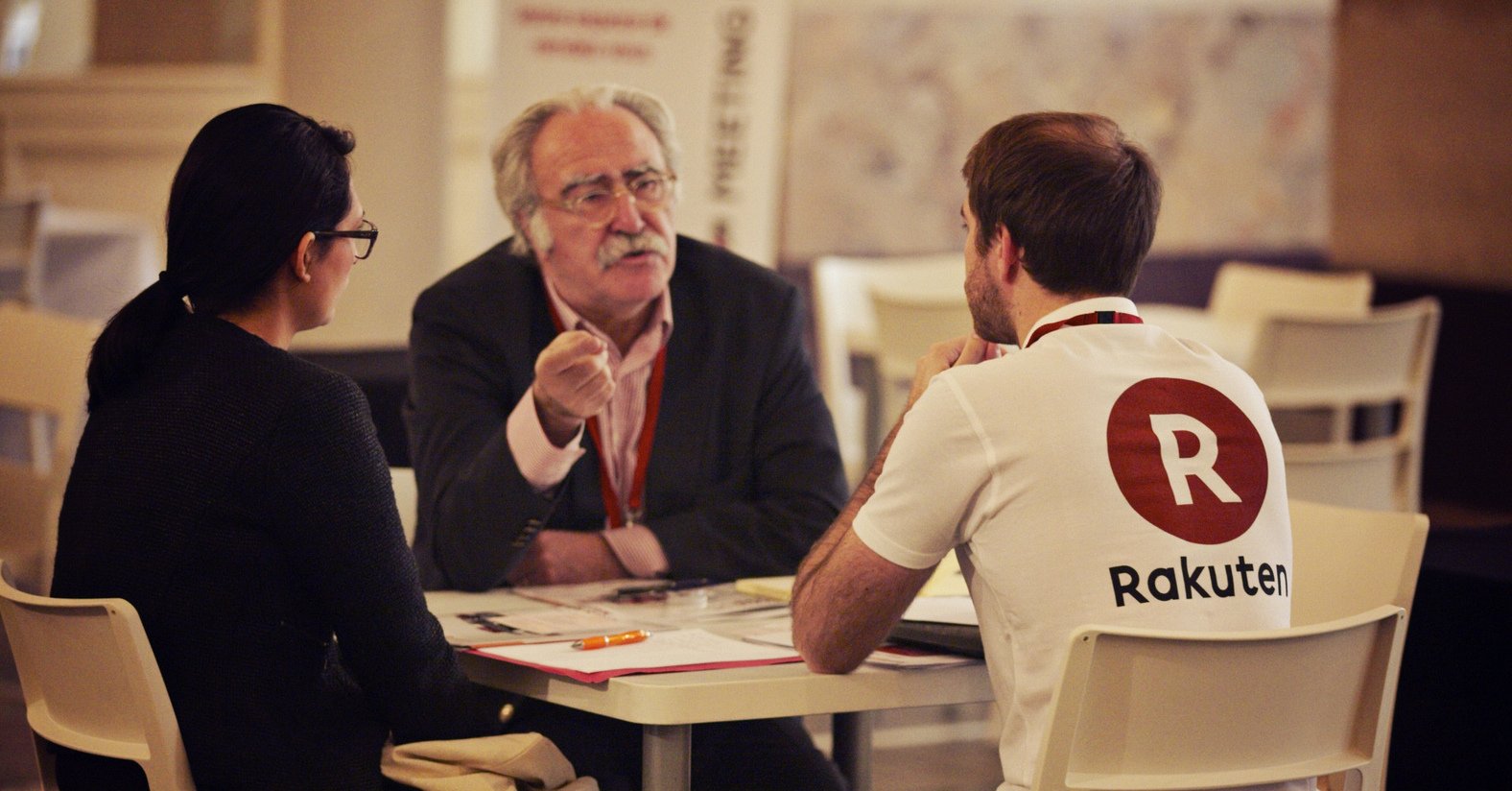Back in 2010, PriceMinister was on a roll. The French e-commerce business was growing 30% year over year. Roughly 10,000 people in France were making a living trading on the site and CEO Pierre Kosciusko-Morizet was very happy with the way things were developing.
Then a strange thing happened. The company received an email addressed to their "general purpose“ customer service email.
The email said something like "We are Rakuten, a Japanese company. We are in Paris and we would like to meet.“
Kosciusko-Morizet (PKM, as he is usually called) had never heard of Rakuten at the time. Rakuten's proposal was to do a strangely structured joint-venture project or, if that wouldn't work, to buy PriceMinister. "The joint venture idea is strange, and we are not for sale.“ was the CEO's response.
For sale anyway
One thing led to another, however. PriceMinister received several acquisition offers from the US during that year and eventually got back to the Japanese. They were invited to come to Tokyo and meet the founder and CEO, Hiroshi Mikitani.
PKM recalls: "So we went there, we met him for half an hour, he said he wanted to buy the company and that happened in two months. We went there on April 9th and it was signed June 17th.”
The price: 200 million euros.
Pierre Kosciusko Morizet is today non-executive Director of Rakuten Europe, and the Japanese e-commerce giant is no longer an unknown quantity outside of its home country like it was in 2010.
During and since 2010, Rakuten has acquired e-commerce leaders in the US (Buy.com), Brazil (Ikeda), Germany (Tradoria), the UK (Play.com) and Russia (Ozon.ru – a minority stake) as well as Thailand, Malaysia, Indonesia and other countries. It's also interested in social and other media, having bought video-on-demand company Wuaki.tv back in 2012, and investing a ton of money in Pinterest.
More coming soon
The acquisitions are set to continue, as Rakuten has set its sights on Eastern Europe, connecting, as it were, the pieces of the puzzle between the core EU countries such as the UK, France and Germany with Russia. Austria, although a small market, has been a successful extension of the German operation.
Aside from geographic expansion, the company’s approach includes extending services offered to customers from the current e-commerce model into a broad range of other online services, including finance, travel, content and communications.
The scope of ambition in this diversification strategy was underscored just a few days ago when Rakuten acquired Viber for a cool $900 million.
For those of us old enough to remember, the Rakuten – Viber deal brings back fond memories of eBay buying Skype. Skype would “reduce friction” amongst buyers and sellers, we were told then, and thus help bolster eBay’s bottom line.
Meg Whitman was somehow vindicated, after sharp criticism for that deal, when eBay eventually sold Skype to Microsoft and ended up turning a nice profit on the deal after all.
Brand unification
I asked PKM whether we can expect to see a consolidation of the various brands into a single “Rakuten” as well as a back-office migration from the various fragmented e-commerce, CRM, ERP and other platforms and systems onto something more unified and standardized.
It turns out that both processes are underway. The European properties, except for France and UK, as well as the US, are now all Rakuten. Play.com and PriceMinister are still “co-branded”, but that too will change.
Standardizing and unifying the back office systems and processes will be a procedure performed away from the public and media spotlight. Knowing how “painless” it can be to migrate - or rip and replace - long entrenched back-office operations, to me this sounds like an “exciting” challenge for the Rakuten crew.
Diversifying away from the core e-commerce business is another key strategic direction for the company. It runs a number of financial services in Japan, including Rakuten Bank, the leading Internet bank in Japan, as well as distinct credit card, brokerage, e-money, m-payment and insurance businesses.
In 2011, Rakuten purchased the Kobo e-reader to gain a foothold in digital media via e-books. This is only one of several dozen verticals where the company is playing – including travel, auctions, online search (Infoseek), marketing etc.; all the way down to super niche areas such as online recipes, integrated Internet marketing, discount coupon purchase, logistics and others.
The French connection
Kosciusko-Morizet is also quite an active angel investor. His two approaches to angel investing are through a personal investment vehicle, as well as through the French entrepreneurs’ investment fund – ISAI – of which he is a cofounder and Executive Chairman.
ISAI invests in “francophonic” startups – i.e. French ones and / or those coming from France’s glorious colonial past. This strikes me as somewhat typical for France. It’s a great country for technology and startups with so many cool and successful projects coming out of the French ecosystem.
I couldn’t help but feel, however, that France is as isolated in its greatness in the startup world as it was in the XVIII century, a “victim of her size”, as Fernand Braudel so eloquently explained in the third tome of his magnificent history of civilization and capitalism, "The Perspective of the World".
London and Berlin are magnets for founders from all across the globe, and many other regional cities throughout Europe are competing for talent. One doesn’t hear so often about young, hungry and talented entrepreneurs relocating to Paris to establish a base for conquering the world.
I asked Pierre whether he felt the same way: “Yes – to a large degree this is true. However, it is changing as the French ecosystem invariably integrates more and more into what’s going on in Europe and the world.”
Featured image credit: PriceMinister / Flickr



Would you like to write the first comment?
Login to post comments